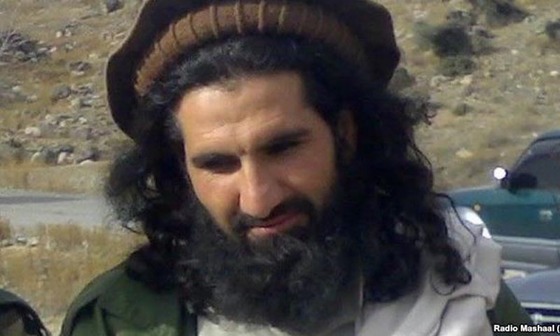The US State Department added a Taliban leader from South Waziristan who had previously served as the deputy emir of the Movement of the Taliban in Pakistan to its list of Specially Designated Global Terrorists.
Khan Said, the Taliban leader from the Mehsud tribe in South Waziristan who is also known as Sajna Mehsud, was added to the US list of global terrorists today.
“Said has had experience fighting in Afghanistan, is believed to be involved in the attack on a Naval base in Karachi, Pakistan, and is also credited with masterminding a 2012 jailbreak in which the Taliban freed 400 inmates in the northwestern city of Bannu, Pakistan,” State says in its designation.
The May 2011 assault on Naval Station Mehran in Karachi resulted in the destruction of two US-supplied P-3C Orion maritime surveillance planes; another was damaged in the attack. Among those freed in the 2012 prison break in Bannu was Adnan Rasheed, who has a long history with Pakistani terrorist groups as well as al Qaeda. Rasheed is currently the emir of the Ansar al Aseer Khorasan (“Helpers of the Prisoners”), a group that includes members from both the Islamic Movement of Uzbekistan and the Taliban and was founded to free jihadists from Pakistani prisons.
Said was appointed as the deputy emir of the Movement of the Taliban in Pakistan after his boss, Waliur Rahman, was killed in a US drone strike in North Waziristan on May 29, 2013.
In May 2014, Said left the Movement of the Taliban in Pakistan over a leadership dispute with Mullah Fazlullah, the group’s emir. Said was rumored to have been appointed emir prior to Fazlullah’s appointment on Nov. 7, 2013. Asmatullah Bhittani, a rival of Said who led the group’s shura, or executive council, appointed Fazlullah over Said. [See LWJ reports, Pakistani Taliban name new emir after Hakeemullah killed in drone strike: report, Pakistani Taliban name interim emir, spokesman says, and Pakistani Taliban name Mullah Fazlullah as new emir.]
The appointment of Fazlullah, a controversial cleric from Swat, ultimately led to most of the factions of the Movement of the Taliban in Pakistan to leave the group. Fazlullah pushed for negotiations with the Pakistani government and announced a ceasefire despite the fact that many of his subordinates disagreed with this course of action.
Said’s Taliban faction, which was the backbone of the group as the Mehsud tribe has led the Movement of the Taliban in Pakistan since it was formed in late 2006, was the first to leave, [See LWJ report, Discord dissolves Pakistani Taliban coalition for more information.]
But leaving the Taliban didn’t mean that Said and his faction abandoned the jihad.
“Said stated his continued commitment to terrorist activity,” after breaking away from the Movement of the Taliban in Pakistan in May of this year, State noted
US intelligence officials who track the Movement of the Taliban in Pakistan and al Qaeda in the Afghanistan-Pakistan region have told The Long War Journal that Said remains a close ally of al Qaeda.
“The dispute between Said’s faction and Fazlullah and the TTP [Movement of the Taliban in Pakistan] hasn’t changed the fact that both Taliban groups remain committed to the local and global jihad,” one official told The Long War Journal. “Said still supports al Qaeda and coordinates activities with the group despite the divisions within the Pakistani Taliban.”








